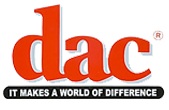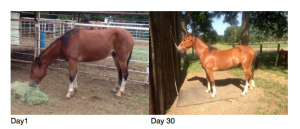 Impaction colic prevention is an issue that every horse owner needs to be aware of. Without knowing the proper ways to avoid this condition, the horses in your Colorado, Kentucky or New York stables could fall victim to this digestive disorder and either require treatment from your veterinarian or surgery if the condition is too serious. But by taking special precautions such as using the right equine feed and monitoring horse electrolytes, you can ensure that your animals remain in good shape throughout the seasons. Lucky for you, Ohio-based Direct Action Company has a few horse care tips to share in order to make your task of defending against impaction colic easier.
Impaction colic prevention is an issue that every horse owner needs to be aware of. Without knowing the proper ways to avoid this condition, the horses in your Colorado, Kentucky or New York stables could fall victim to this digestive disorder and either require treatment from your veterinarian or surgery if the condition is too serious. But by taking special precautions such as using the right equine feed and monitoring horse electrolytes, you can ensure that your animals remain in good shape throughout the seasons. Lucky for you, Ohio-based Direct Action Company has a few horse care tips to share in order to make your task of defending against impaction colic easier.
 With the onset of winter, the threat of impaction colic is even greater. This is largely due to diet and exercise regimens during the cold seasons. As horses typically stay indoors for a large portion of the winter season, they are unable to get adequate exercise. And it’s this exercise that is so vital to normal intestinal function. Without it, the horse’s large intestine is more likely to fold in on itself, making it a site for feed or foreign materials to cause blockages. One of the most important horse care tips that Direct Action Company can offer is to make sure the animals in your Colorado, Kentucky or New York stables still get the exercise they need during the colder months. If you are unable to take your animals out as often as they need, then their water, horse electrolyte and equine feed intake should be adjusted.
With the onset of winter, the threat of impaction colic is even greater. This is largely due to diet and exercise regimens during the cold seasons. As horses typically stay indoors for a large portion of the winter season, they are unable to get adequate exercise. And it’s this exercise that is so vital to normal intestinal function. Without it, the horse’s large intestine is more likely to fold in on itself, making it a site for feed or foreign materials to cause blockages. One of the most important horse care tips that Direct Action Company can offer is to make sure the animals in your Colorado, Kentucky or New York stables still get the exercise they need during the colder months. If you are unable to take your animals out as often as they need, then their water, horse electrolyte and equine feed intake should be adjusted.
 Too much indigestible fiber can lead to blockages in the intestine. That’s why it’s so important to wet the equine feed you give your horses and ensure that they have plenty of fresh water to drink. Since some horses are sensitive to cold water during the winter months, Dr. Tania Cubitt of Performance Horse Nutrition suggests giving them warm water that won’t cause unpleasant sensations in their teeth and gums.
Too much indigestible fiber can lead to blockages in the intestine. That’s why it’s so important to wet the equine feed you give your horses and ensure that they have plenty of fresh water to drink. Since some horses are sensitive to cold water during the winter months, Dr. Tania Cubitt of Performance Horse Nutrition suggests giving them warm water that won’t cause unpleasant sensations in their teeth and gums.
Along with giving your horses sufficient water and suitable equine feed, Ohio-based DAC suggests incorporating additional horse electrolytes as well. By giving your horses a product such as DAC’s Electro-Aid and following the horse care tips mentioned above, you can do a lot for impaction colic prevention.
 If any of the horses in your Colorado, Kentucky or New York stables show signs of depression, decreased appetite or dry manure, it’s important to contact your veterinarian right away as they may have an intestinal blockage. If not, then impaction colic prevention should still be a top priority. Give your animals plenty of water, exercise and a healthy diet of high-quality equine feed, especially during the winter months when they’re often stuck inside. To find more horse care tips from Ohio-based Direct Action Company, visit their website at www.feeddac.com. If you’d like to start incorporating their own horse electrolyte product in your horses’ daily regimen, call 800.921.9121 to find a dealer near you.
If any of the horses in your Colorado, Kentucky or New York stables show signs of depression, decreased appetite or dry manure, it’s important to contact your veterinarian right away as they may have an intestinal blockage. If not, then impaction colic prevention should still be a top priority. Give your animals plenty of water, exercise and a healthy diet of high-quality equine feed, especially during the winter months when they’re often stuck inside. To find more horse care tips from Ohio-based Direct Action Company, visit their website at www.feeddac.com. If you’d like to start incorporating their own horse electrolyte product in your horses’ daily regimen, call 800.921.9121 to find a dealer near you.
Direct Action Company
Ph: 800.921.9121
www.feeddac.com
